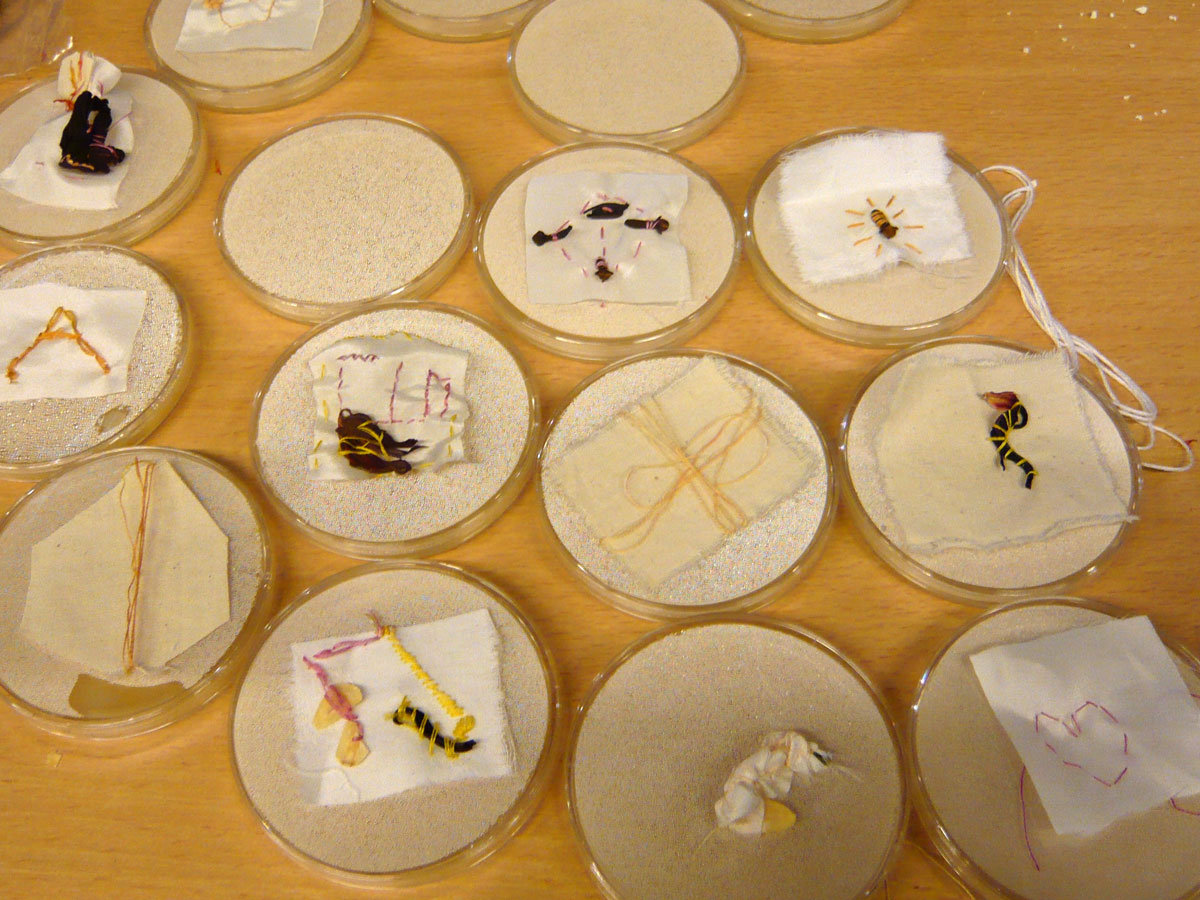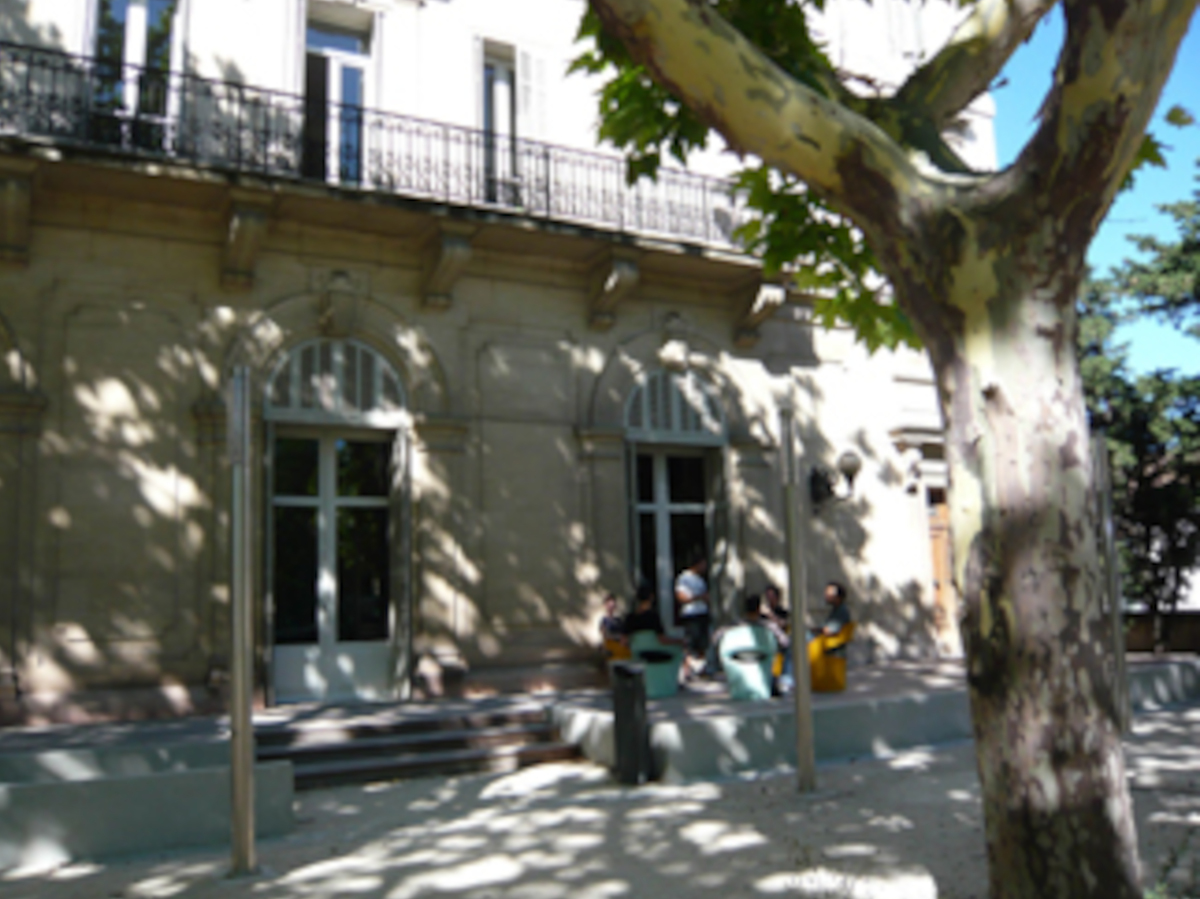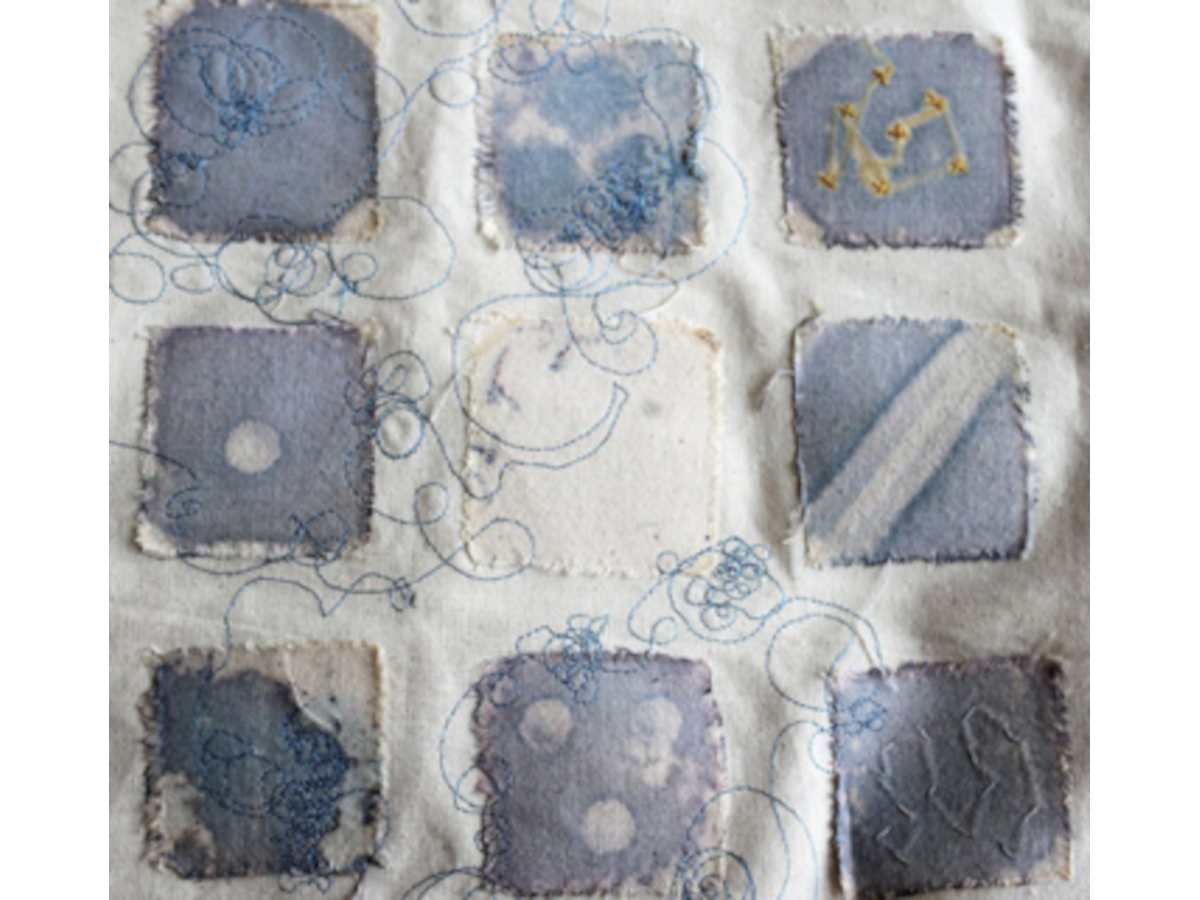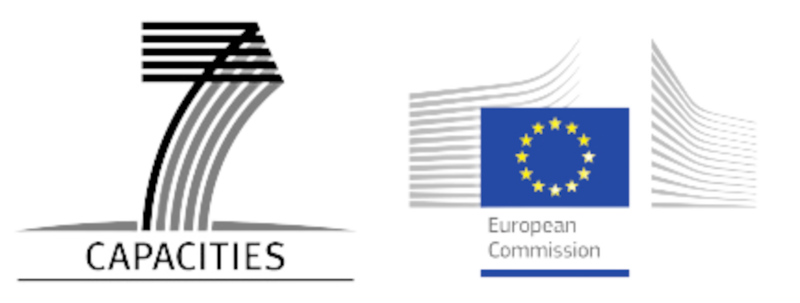
Studio Lab
Leonardo/Olats est partenaire du projet européen StudioLab (2011 – 2014) pour le développement de collaborations innovantes entre art et science.
Site d’origine : http://archive.olats.org/studiolab/studiolab.php
Leonardo/Olats is partner of the three year european project StudioLab (2011-2014) for innovative art science collaborations.
Original website : http://archive.olats.org/studiolab/studiolab.php
Future of Water

Atelier Rencontres Interdisciplinaires Leonardo/Olats – IMéRA – Marseille 25 & 26 Juin 2012
Interdisciplinary Workshop Leonardo/Olats – IMéRA Marseille – June 25 – 26 2012
Future of Biology
Bio Art - Bio Design Les enjeux culturels et sociétaux de la biologie de synthèse, journée d'études, 6 mars 2014

"MRSA Quilt", Anna Dumitriu
Hacker les bactéries, atelier avec l'artiste Anna Dumitriu, 4 mars 2014
Dans cet atelier, organisé en partenariat avec Décalab à l’Espace des sciences Pierre-Gilles de Gennes à Paris, les participants ont mis en pratique les méthodologies des sciences citoyennes et créatives utilisées par l’artiste AnnaDumitriu pour explorer la microbiologie.
Annick Bureaud, Roger Malina & Louise Whiteley (Eds.), Leonardo/ISAST, MIT Press, Leonardo ebook series, Kindle Edition, July 2014
Future of Social Interaction
The Data Body on the Dissection Table, Medical Museion, Copenhagen, June 4th 2013 Arts, Humanities, Medicine and Complex Network
Dissection reveals what lies beneath the skin, but for a brief moment in time, and for a priviledged few. Depictions, models, and preservations have long been used to share what dissection uncovers; from ancient anatomical drawings to today’s virtual 3D anatomies.
In the 18 th Century skinned “écorché” figures and anatomical waxes were constructed to reveal systems of interlocking bones, balanced pairs of muscles, and delicately entangled traceries of nerves and blood vessels. The Anatomy Lesson by Rembrandt, and the écorché The Horse Rider by Honoré Fragonard are famous examples at the border between medicine, science and art.
Contemporary medical sciences reveal ever more about the complex systems of the human body – but at a barely perceptible level. The (medical) human body today is understood, tested, and treated as a huge system of data, including complex interactions between our genetic material, our environment, and our host of microbial companions.
How do we grab hold of this data? How do we make sense of it and communicate it to others? How do contemporary artists and designers give our ‘data body’ material form through images, sound, and touch? What kind of tools are complex networks science proposing, and what kind of body do they reveal?
The Data Body on the Dissection Table brought together scientists, artists, philosophers, and designers to explore these questions, through roundtable presentations and audience discussion. The event took place in Medical Museion’s auditorium – the Danish Royal Academy of Surgeons’ former anatomical theater. Speakers included Albert-László Barabási , Distinguished Professor and Director of Northeastern University Center for Complex Network Research, Boston; François- Joseph Lapointe, Professor at the Biological Sciences Department, University of Montreal and Artist; Annamaria Carusi, Associate Professor in Philosophy of Medical Science and Technology at the University of Copenhagen and Jamie Allen, Artist and Head of Research at CIID/Copenhagen Institute of Interaction Design. The event has been coorganised by Leonardo/Olats and Medical Museion under the EU Studiolab framework, and in conjunction with the Leonardo Day « Arts, Humanities and Complex Networks » satellite event for NetSci 2103 by Annick Bureaud, Roger Malina, Maximilian Schich and Louise Whiteley.
Articles from the presentations
Archive of the original web site
Arts, Humanities and Complex Networks
The publication editors of this ebook are art historian Max Schich, designer Isabel Meirelles and Leonardo Executive Editor Roger Malina.
About
StudioLab is a 3-year Europe-wide initiative that merges the artist’s studio with the research lab. Funded by the EC Seventh Framework Programme in 2011, Studiolab is a European network that provides a platform for creative projects that bridge divides between science, art and design.
Through this synergistic network, the project is inspiring new approaches to environmental, technological and social challenges and providing a template for innovative art science collaborations. Led by Science Gallery, Trinity College Dublin, Studiolab involves interaction between 13 leading centres of scientific research, artistic excellence and experimental design from 12 different European countries.
This network includes Le Laboratoire, Paris; the Royal College of Art, London; Ars Electronica, Linz; MediaLab Prado, Madrid; Synergetica, Amsterdam; ISI Foundation, Turin; ERG, Brussels; Leonardo/Olats, Paris; CIANT, Prague; RIX-C, Riga; Medical Museion, Copenhagen; Bloomfield, Jerusalem.
Studiolab partners are collaborating and working with world leading scientists, artists, and designers to pilot projects using integrated processes of incubation, education and public engagement. Incubation actions develop and strengthen ideas, bringing them from concepts to outcomes, while educational modules tackle the lack of opportunities for interdisciplinary learning and an art-science approach within second and third level formal education systems. Public engagement activities catalyse open collaboration and insight into the scientific process, drawing the public into dialogue with scientists, artists and designers through exhibitions, events and workshops. Studiolab’s hybrid projects focus on three main themes at the frontiers of science, the Future of Water, Synthetic Biology, and the Future of Social Interaction. Complex Networks, their topology and dynamics, permeates these themes, in particular the Future of Social Interaction. This theme provides rich elements for exploration including, Small-world networks, Scale-free networks, network mathematical models, neural nets, and networks affect on knowledge creation.
Across these three themes and three strands, Studiolab partners will develop products and activities with educational, social, cultural, or commercial value and provide a template of innovative art science collaborations, as well as a unique programme of activities which promote 21st century learning, skills and creativity among Europe’s citizens.
Sponsors
This project has received support from Studiolab. Studiolab is funded by the European Commission 7th Framework Program.

Leonardo/Olats
Observatoire Leonardo des Arts et des Techno-Sciences
À propos / About | Lettre d'information Olats News



Pour toute (re)publication, merci de contacter / For any (re)publication, please contact Annick Bureaud: info@olats.org
Pour toute question concernant le site, merci de contacter / For any issue about the website, please contact: webmaster@olats.org
Design Thierry Fournier
© Association Leonardo 1997-2022